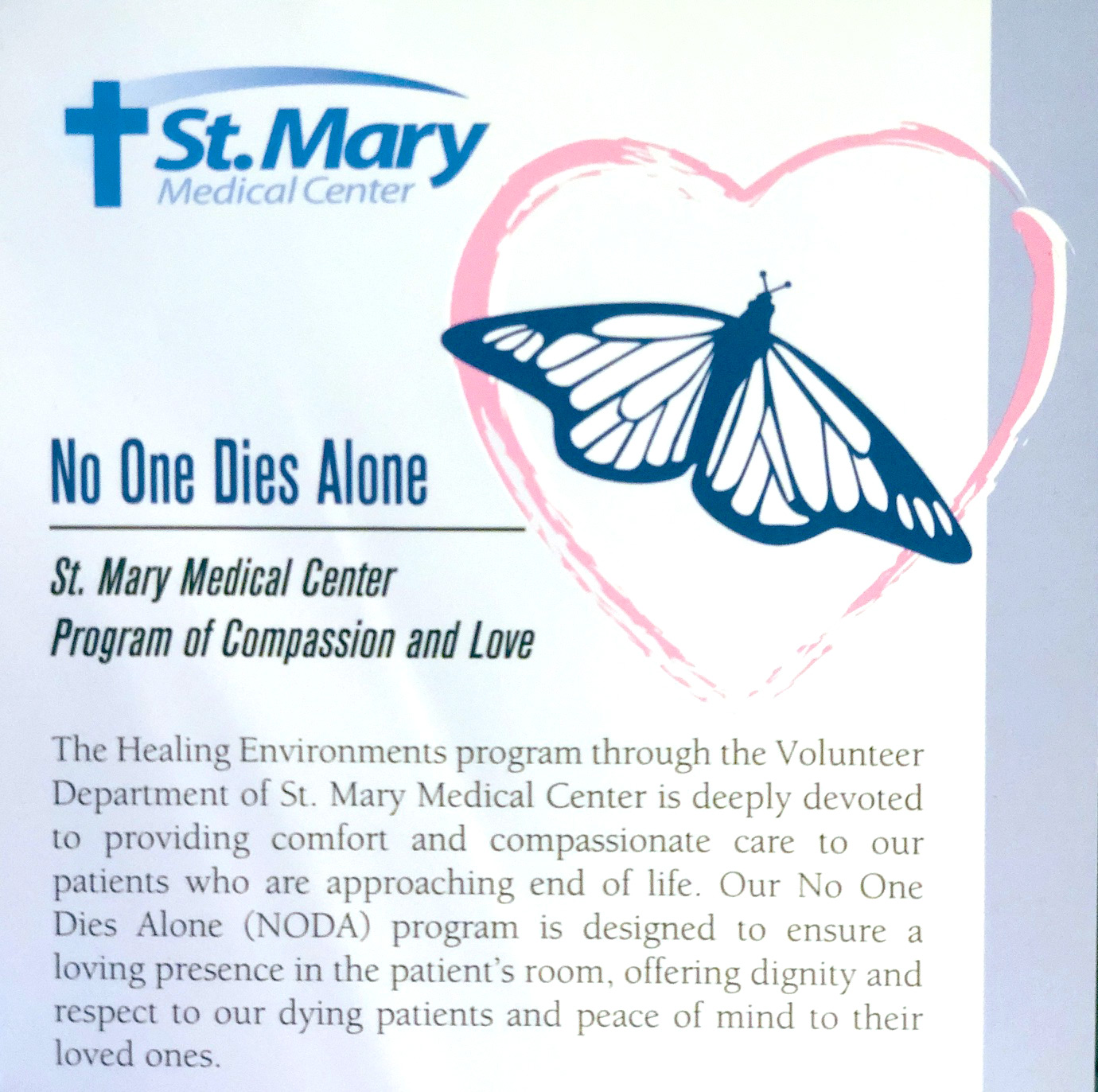
Help one another. There is no time like the present and no present like the time.
James Durst, American Author
Volunteers come in many varieties. What all volunteers have in common is their desire to reach out to their fellow human and offer whatever assistance they can. We are fortunate to have many skilled crafters in our community. And some people are skilled listeners, with a deep capacity to instill hope, comfort, and, when needed, courage.
Two closely entwined programs are the Respite Caregivers Program and the No One Dies Alone (NODA) program. I was privileged to work with both at St. Mary Medical Center in Langhorne, PA., as part of my Healing Environments Program.
Respite Companions serve in many capacities. These volunteers often come to hospice centers and private homes to give caregivers some time to regroup. They are trained volunteers who are able to sit with patients for several hours.* They often help families get a much-needed break from the strains of caring for a loved one, but they also sit with individuals who have no one to visit with them. Respite Companions also help patients who need special attention due to anxiety over an upcoming surgery or treatment, or who, for whatever reason cannot be soothed. They help wherever needed by providing patients with reassurance, encouragement, and the knowledge that they are not their disease. Respite Companions are there to listen and talk with patients. Whether they want to reminisce about the past, chat about sports, or even ask for some spiritual support, the primary focus is on keeping the patient, calm, and reassuring them they are well cared for. Information about the Respite Caregivers Program – whether you wish to volunteer or inquire about their services – is available at Adult Respite Care: Caregiver Support Services (accessservices.org).
Similarly, the No One Dies Alone program (NODA) is composed of specially trained volunteers called Comfort Companions. Comfort Companions sit with patients who have no one to visit with them or whose family needs respite for several hours to leave and take care of personal business. This compassionate service helps ease patients through the final stages of a terminal illness. The program started in 2009 at St. Mary. The initial team of 25 people was comprised of medical professionals, social workers, spiritual advisors, volunteer staff, and Healing Environments volunteers. After careful consideration of end-of life concerns and the protocols used by St. Mary, the team worked with families to provide a peaceful environment when they could not be with their loved-one. As difficult as end of life can be, families felt consoled by the presence of the these amazing individuals as they held hands, prayed, or just talked to the patient about their life. Founded by Sandra Clarke, RN at Sacred Heart Medical Center, Eugene, Ore, in 2001, many hospitals now offer this program. Information is available at St. Mary Medical Center, go to Spiritual Care (trinityhealthma.org).
*AARP Article – “Valuing the Invaluable” report estimates that family caregivers provided 36 billion hours of unpaid care worth $600 billion in 2021. “45 States and territories have CARE Act laws in place that support family caregivers.” AARP, May 2023.
